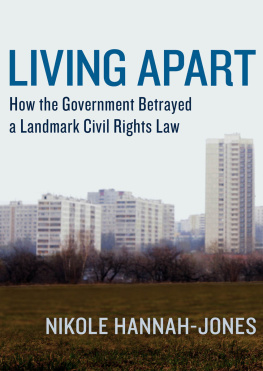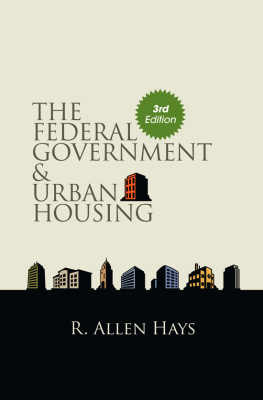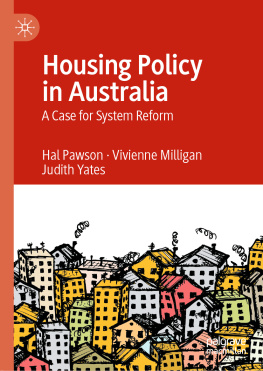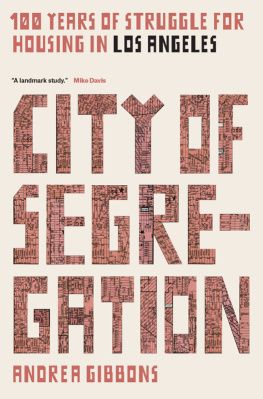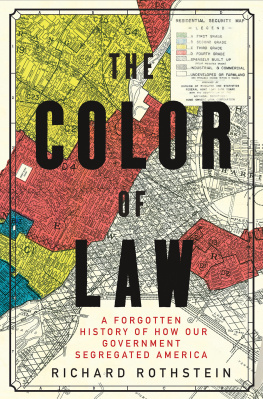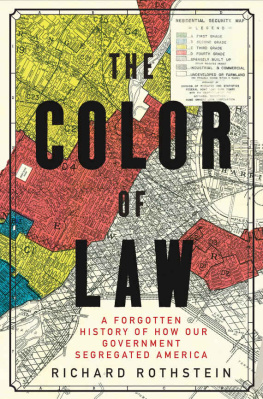Living Apart
How the Government Betrayed a Landmark Civil Rights Law
Nikole Hannah-Jones

Living Apart
How the Government Betrayed a Landmark Civil Rights Law
A FEW MONTHS AFTER Congress passed a landmark law directing the federal government to dismantle segregation in the nations housing, President Nixons housing chief began plotting a stealth campaign.
The plan, George Romney wrote in a confidential memo to aides, was to use his power as U.S. secretary of housing and urban development to remake Americas housing patterns, which he described as a high-income white noose around the black inner city.
The 1968 Fair Housing Act, passed months earlier in the tumultuous aftermath of the Rev. Martin Luther King Jr.s assassination, directed the government to affirmatively further fair housing. Romney believed those words gave him the authority to pressure predominantly white communities to build more affordable housing and end discriminatory zoning practices.
Romney ordered HUD officials to reject applications for water, sewer and highway projects from cities and states where local policies fostered segregated housing.
He dubbed his initiative Open Communities and did not clear it with the White House. As word spread that HUD was turning down grants, Nixons supporters in the South and in white Northern suburbs took their complaints directly to the president.
Nixon intervened immediately.
Stop this one, Nixon scrawled in a note on a memo written by John Ehrlichman, his domestic policy chief.
In a 1972 eyes only memo to Ehrlichman and H.R. Haldeman, another aide, Nixon explained his position. I am convinced that while legal segregation is totally wrong that forced integration of housing or education is just as wrong, he wrote.
The president understood the consequences: I realize that this position will lead us to a situation in which blacks will continue to live for the most part in black neighborhoods and where there will be predominately black schools and predominately white schools.
Romney, the former governor of Michigan and father of Republican presidential candidate Mitt Romney, held his ground. Notations and memos in his private papers show that he viewed the blighted black ghettos as a root cause of the inner-city riots of the 1960s. Equal opportunity for all Americans in education and housing is essential if we are going to keep our nation from being torn apart, he wrote in talking points he drew up for a meeting with the president.
Romneys stance made him a pariah within the administration. Nixon shut down the program, refused to meet with his housing secretary and finally drove him from the Cabinet.
Over the next four decades, a ProPublica investigation shows, a succession of presidents Democrat and Republican alike followed Nixons lead, declining to use the leverage of HUDs billions to fight segregation.
Their reluctance to enforce a law passed by both houses of Congress and repeatedly upheld by the courts reflects a larger political reality. Again and again, attempts to create integrated neighborhoods have foundered in the face of vehement opposition from homeowners.
The lack of political courage around these issues is stunning, said Elizabeth Julian, a former senior HUD official. The failures of fair housing are not just by HUD but by the country.
Nixons vision for America largely came to pass and the costs have been steep. More than 20 years of research has implicated residential segregation in virtually every aspect of racial inequality, from higher unemployment rates for African Americans, to poorer health care, to elevated infant mortality rates and, most of all, to inferior schools.
HUDs largest program of grants to states, cities and towns has delivered $137 billion to more than 1,200 communities since 1974. To receive the money, localities are supposed to identify obstacles to fair housing, keep records of their efforts to overcome them and certify that they do not discriminate.
ProPublica could find only two occasions since Romneys tenure in which the department withheld money from communities for violating the Fair Housing Act. In several instances, records show, HUD has sent grants to communities even after theyve been found by courts to have promoted segregated housing or been sued by the U.S. Department of Justice. New Orleans, for example, has continued to receive grants after the Justice Department sued it for violating the Fair Housing Act by blocking a low-income housing project in a wealthy historic neighborhood.
ProPublica submitted 41 questions to HUD about its failure to use its authority to promote integrated housing. HUD issued a statement which did not address that issue but said the agency has worked hard to enforce provisions of the law that bar discrimination against individuals.
Scholars have traced the history of housing segregation in several notable books and articles. ProPublica has obtained new documents and interviewed key figures in the four-decade battle over the Fair Housing Act.
Present and former officials in HUDs Office of Fair Housing and Equal Opportunity said their attempts to enforce the 1968 law were met with indifference or opposition from the agencys senior officials.
The office has the smallest staff and budget of HUDs four major programs. Several officials in key positions said they had never been trained to enforce the laws requirement to affirmatively further fair housing. In most cases, HUD does not even check the paperwork filed by cities and states about their efforts to deal with segregation and other issues that stymie integrated housing; it simply writes checks.
People say integration has failed, said Julian, an assistant secretary for fair housing during the Clinton administration. It hasnt failed because its never been tried.
The Fair Housing Act was the most contentious of the civil rights-era legislation, blocked for years by Northern and Southern senators alike. It took infernos in more than 125 cities following Kings assassination to force the bills revival.
Former Vice President Walter Mondale, the floor manager of the legislation as a freshman senator from Minnesota, said Kings death provided a powerful but brief urgency to eradicate the nations ghettos.
Other laws and presidential orders have integrated the military, opened opportunities for higher education and provided protections against workplace discrimination.
But despite the Fair Housing Act, levels of residential segregation have barely budged in many of the large metropolitan areas where most African Americans live.
Today, as in the 1960s, many argue that the separation of the races is a matter of personal choice. But numerous surveys show that African Americans, more than any other group, want to live in integrated neighborhoods.
Others say income disparities are behind the color-coded American metropolises, that lower-income African Americans simply cant afford to live in wealthier white areas. Yet black Americans earning $75,000 a year typically live in poorer neighborhoods than white Americans earning $40,000 a year, according to an analysis of census data by John Logan of Brown University.
Mondale, now 84, said the law hasnt created this integrated vision that we were talking about. One of the great moral failings of our country, despite the Great Society and despite what we tried to do, is the deprival of justice for the people who have come from behind. Its something I worked on all of my life and I am very disheartened by it.
The Obama administration prodded by private lawsuits has done somewhat more than its predecessors. It has taken the unprecedented step of withholding money from Joliet, Ill., and Westchester, N.Y., for not meeting civil rights obligations.

